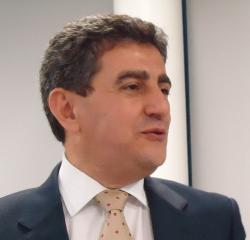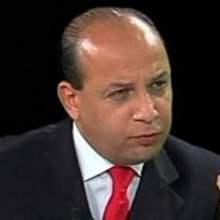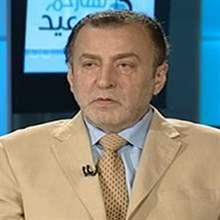

1:30 am +04 - 3:00 am +04
Past Event
Content from the Brookings Doha Center is now archived. In September 2021, after 14 years of impactful partnership, Brookings and the Brookings Doha Center announced that they were ending their affiliation. The Brookings Doha Center is now the Middle East Council on Global Affairs, a separate public policy institution based in Qatar.
The Brookings Doha Center (BDC) hosted a panel discussion on October 12, 2015 regarding Lebanon’s domestic political crisis, specifically in light of the recent You Stink protests. The panelists were Ali Hamade, journalist and editorialist for An-Nahar Arabic newspaper, and Ahmad Moussalli, professor in political science at American University of Beirut. BDC Director of Research Sultan Barakat moderated the event, which was attended by members of Qatar’s diplomatic, academic, and media community.
Barakat opened the discussion by noting that Lebanon has had problems including the lack of adequate services for a long time, well before the war in Syria, but it was only in July that the You Stink movement took to the streets. He asked the panelists to explain why the protests started and whether there are links to the regional situation.
Hamade explained that Lebanon’s issues are plentiful, including electricity shortages, the squandering of water supplies, and the mismanagement of waste, which he blamed on “corruption at all levels, high and low.” Yet, Hamade continued, the Lebanese still failed to override the country’s sectarian fault lines, though civil society organizations have tried to spark broad-based protests, including after Lebanon’s parliament extended its own mandate. He said that the Lebanese finally woke up in June because of the garbage problem. Hamade described August 29 as being the first time in Lebanon’s history that there were huge demonstrations, without any political or sectarian affiliation, “to shout that enough is enough, we can no longer tolerate this sick reality the country is living in.” He concluded that there was not yet a satisfactory explanation for this phenomenon.
Moussalli then explained that the source of the protest movement “is very exact” and that Lebanese feel that something big is wrong, not only in the politics but in everything. “The garbage problem is just a sign, a bubble that exploded in the face of the government, proving that it can do nothing,” he added. Moussalli said the current movement is a surprise to everyone, and that its objective has the sympathy of the Lebanese people. He noted, however, that because this movement is not political or sectarian at its root, it threatens the private and public interests of all the political actors in the country, most of whom are corrupt. Moussalli pointed out that both March 8 and March 14, and specifically Michel Aoun, have tried and failed to contain or influence the movement. He concluded, “I salute these young people, and hope they succeed in rescuing us from sectarianism.”
Asked about the government’s response, specifically the national dialogue, Moussalli predicted that it “will lead to nothing” because the movement’s preconditions, including the electing of a president, have not been met. He explained that there is a deadlock between March 8, which has nominated General Aoun, and March 14, which has nominated Samir Geagea, and that the parliamentary mechanism to elect one is incorrect. Hamade added that in Lebanon, “the law is an opinion” and the written constitution is not being implemented. He argued that “we still have points of view governing the situation.” Moussalli agreed, stating that sectarianism is taking the country to a point where it cannot function. He cautioned that if things are left in the hands of Hezbollah, the Future Movement, and big-name leaders like Walid Joumblatt, the country will collapse.
Barakat then asked about what the movement is demanding and proposing. Hamade explained that the movement has even called for the fall of the regime, but that unlike in other Arab countries, what that means is unclear. He added that there have also been demands for parliamentary and presidential elections and the resignation of certain ministers, but the issue of garbage collection and other services tops the list. Hamade said the movement has contributed to awakening the people, but it still has a long road before it. He argued that media coverage is giving the movement influence, but that a party leader could call 100,000 followers to the street tomorrow, risking a confrontation.
Moussalli said the dangerous part of this movement is that people are threatening the ruling power, both Hezbollah and the Future Movement, and they have not been willing to compromise, even rejecting a meeting with Prime Minister Tammam Salam. He reiterated that the demands of the people are righteous and people sympathize with them. Hamade noted that the political parties accuse each other of being agents of foreign powers, but at the end of the day they sit and negotiate, and Moussalli asserted that there are not any real differences between them, as both are corrupt.
Dissecting the You Stink movement further, Hamade stated that it was stronger initially because it accused everyone without fear, but now it is afraid of being threatened. He suggested that the protestors targeted the minister of environment because he does not have a powerful patron, and that they would not do the same at ministries controlled by Hezbollah or Joumblatt due to the risk of backlash. Moussalli predicted that there would be a countermovement soon and that the You Stink movement cannot go any higher because some people think it is supported by the Americans or others, so there is fear that it will push Lebanon into more trouble. Barakat asked if it would be possible to nationalize the basic services, but Hamade said it was not at all feasible.
In response to questions from the audience, Hamade cautioned that the last time Lebanon tried to revamp its political system it ended up with civil war, and noted the Lebanese are all armed. Moussalli added that there has not been total collapse because the only thing the political class is united on is the system continuing. He asserted that the consensus system will go nowhere because power sharing along sectarian lines will not succeed. Moussalli warned, “If you do not change the meaning of citizenship, we are heading toward new explosions.”
Regarding the Russian intervention in Syria, Hamade opined that it is not in the interest of Lebanon. He explained that Lebanese are divided over the Syrian conflict, but there is agreement on avoiding confrontations that could lead to another civil war. Concluding the event, Moussalli said that American weakness and indecisiveness in the region, along with a policy of dismantling regimes, is what created the situation in Syria.




Noha Aboueldahab
August 23, 2021

August 23, 2021

Yasmina Abouzzohour
August 19, 2021